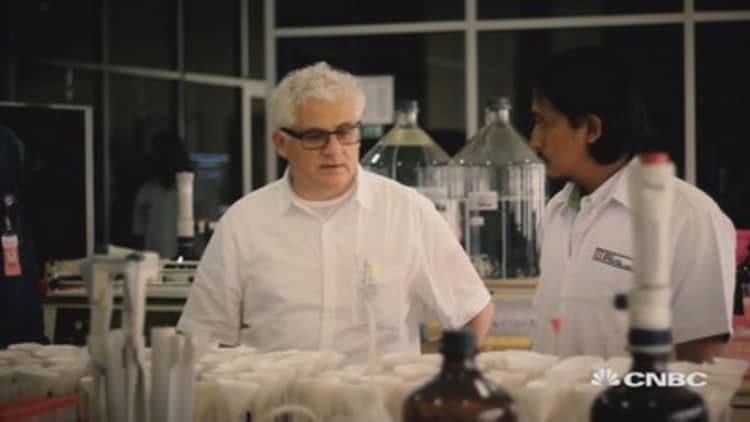
Palm oil is an integral part of modern life. It's used in a host of products, from chocolate and shampoo to bio-diesel and margarine. Our hunger for items containing palm oil has an environmental cost, however.
According to the World Wide Fund For Nature (WWF), the impacts of big, monoculture oil palm plantations include "large scale forest conversion" and the loss of "critical habitat for endangered species."
In addition, the WWF points to other negative effects such as air pollution, climate change and soil erosion.
Singapore's Golden Agri-Resources, also known as GAR, is one of the planet's biggest palm oil plantation companies, managing over 480,000 hectares of palm oil plantations. It describes sustainability as being "an essential part of our business."
"The objective of the company is to produce oil, sustainable oil for… world demand, whatever the consumer wants to use this oil for, whether it's for food, whether it's for energy, or whether it's for cosmetic or any other purpose," Jean Pierre Caliman, director of GAR's SMART Research Institute (SMARTRI), told CNBC's Sustainable Energy.
"But the important thing for us is to produce the oil in a sustainable way, meaning… no deforestation, no risk on the environment, and using the best practices," Caliman added.
According to GAR, the SMART Research Institute employs agronomists and scientists in order to boost yields and productivity, two facets it says is crucial to its sustainability policy.
For the Food and Agricultural Organisation's Andrea Rossi, there are several ways in which the production of palm oil can be made both more efficient and more sustainable.
"There is a lot of room to significantly increase the productivity of oil palm cultivation, especially at smallholder level, for instance through the introduction of higher yielding varieties and improved management practices," he said.
"And if palm oil production is made more efficient and productive, then more palm oil can be produced using the same land and there's no need for further land expansion," Rossi added.




